- Key Differences
Know the Differences & Comparisons

Difference Between Travel and Tourism
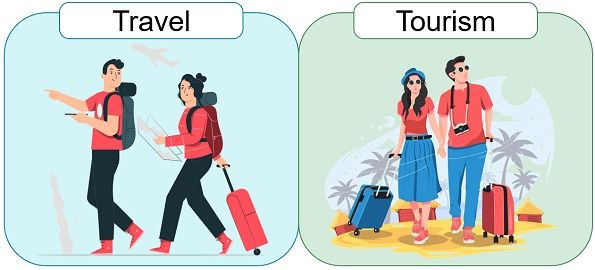
While travel is a transition, tourism is possible when one reaches the ultimate destination. We all love going on trips with our families, friends and close ones. In this context, we use the words travel and tourism quite commonly. Tourism is an industry where businesses provide accommodation, transport and other facilities.
In the fundamental sense, a tourist is a person who sees places, but a traveller is someone who goes to places.
The main objective of travelling is movement, whereas the objective of tourism is for leisure.
Content: Travel Vs Tourism
Comparison chart.
- What are Travellers?
- Who are Travel Agents?
What is Travel?
When you travel, you go for a long trip or journey either solo or with a group of family or friends. One can use different modes of transportation like aeroplanes, trains, cars, buses and ships. It covers both domestic as well as international journeys. Travel increases your knowledge about the world, you experience the culture and traditions of that place, and also you learn what place is about.
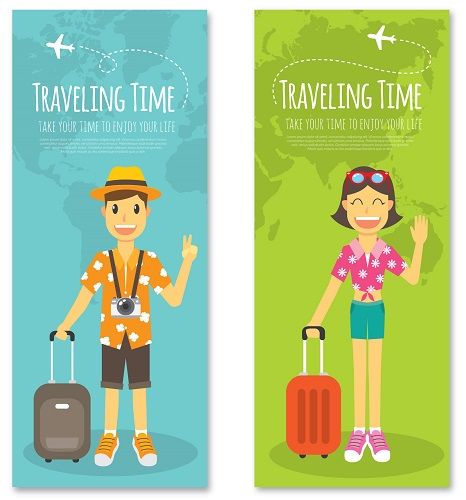
Travelling can be for long distance, short distance, domestic, abroad, etc. It may include travelling by different ways like air, road, rail and water.
Who is a Traveller?
A traveller is someone who likes to travel light without any tour package that has a fixed schedule. Travellers believe in packing less and exploring more concepts. On travelling, people try to explore the place themselves. For that, they learn more and more about their culture and history. They also eat local cuisine, find out new places and visit their famous destinations. In other words, travellers blend with the locals. Travellers visit multiple destinations during their journey.
Who is a Travel Agent?
Travel Agent has complete information and knowledge of tourism products and services.
Also Read : Difference Between Economy Class and Business Class
What is Tourism?
In simplest terms, tourism means a travel business which covers all facilities of the service industries that cater to tourists. Tourism companies are responsible for ticket booking, visa clearance, organizing tours, accommodation facilities, transport facilities, etc.
Tourism is an industry that deals with preparing packages for tourists. Now you must be thinking – what is included in tourism? So, friends, tourism covers visiting tourist attractions, having cultural experiences, exploring natural wonders and going to new destinations. Shopping, sightseeing, entertainment, dining out at restaurants, attending cultural events, participating in adventure sports, and experiencing local culture, traditions and cuisines all form part of tourism.
Tourism is for pleasure purposes. It involves a to-and-fro trip. Tourism is a general concept in the sense that a large number of people visit places (near or distant).

Impact of Tourism in the Economy
Tourism is one of the important sectors for many economies that generate income from domestic and foreign tourists. Tourists shop a lot, so it is a source of income for the locals. It also contributes to creating jobs in hospitality industries like hotels, entertainment, transportation and restaurants. Not just this, it also increases employment opportunities for locals.
It also boosts economic growth in the country by bringing foreign money to the country, as foreign tourists spend on goods and services. However, the money is mainly utilized for the upgradation of infrastructure. Also, it takes care of the needs and wishes of the tourists.
Who are Tourists?
Any person who is away from their usual place of residence for a certain period but will return home. They participate in leisure activities. Their visit is temporary, i.e. for a short period only.
Types of Tourism
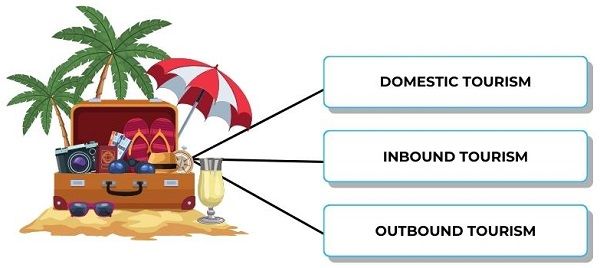
- Domestic Tourism : When people go for holidays, short trips and day trips within their domestic country. For example , a Supporter of a cricket team going to watch cricket held in another city or a family outing.
- Inbound Tourism : It is a form of international tourism wherein people go abroad from their home country. For Example , A group from the USA is visiting the UK for a trip.
- Outbound Tourism : When people travel to visit international countries for leisure or business from their domestic country. For Example , A family from India is going to UAE on holiday.
Also Read : Difference Between Passport and Visa
Key Differences Between Travel and Tourism
- While ‘travel’ means moving from one place to another, there will be a change in the location, weather and overall environment.
- The term ‘travel’ is a very generic one which is used in our day-to-day lives. As against, ‘tourism’ is used by tour companies, and holiday operators often use the word ‘tourism’.
- A traveller spends time with the local population and ethnic groups. He tries to understand their culture, eats local food, learns the local language, etc. In contrast, a tourist generally spends time with tourist groups. He comes to see their culture, eats different cuisines and prefers speaking English.
- Travelling takes place solo or in small groups. At the same time, the tour takes place in large groups.
- Tourism lays emphasis on having a lifetime experience of exploring new places and destinations. Also, in tourism, a person engages in a diverse culture.
- In tourism, a planned itinerary and specific activity is present in a tour package. However, no planned itinerary and specific activity is present in travel.
- When it comes to food, tourists always go to the restaurants where other tourists eat. But travellers are different; they eat where locals eat.
- Tourists walk slowly, spend time in cafes, and click pictures of the places they visit or the things that attract them. As against, a traveller generally do a research on the places they visit and also checks the routes to get there. When they reach their destination, they like to know the history of that place.
- Travelling takes place suddenly without any plan. But in the case of a tour, there are plans for every day, hour and in fact, moment. Furthermore, travellers can make changes to their plans depending on their needs and moods. But in tourism, people have to stick to their schedules, otherwise they miss the same.
- A traveller seeks to learn the regional language so that he can communicate well with the locals to understand their lifestyle, culture, regional history and many more. Conversely, a tourist uses English as a medium of communication.
What is Ecotourism?
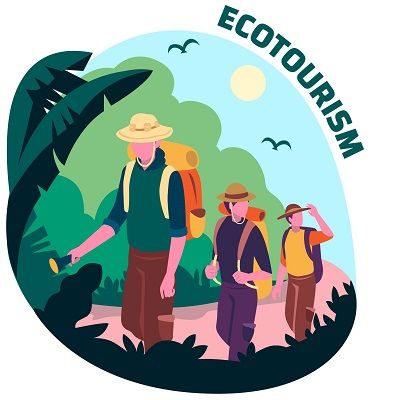
Ecotourism is a responsible and sustainable form of tourism. It focuses on the preservation of the environment and, at the same time, allows the visitors to have an immersive experience.
Tourism is a part of travel. However, all the travel is not tourism. Further, while a traveller is engrossed in the culture, a tourist loves to visit tourist spots at any location.
You Might Also Like:

Leave a Reply Cancel reply
Your email address will not be published. Required fields are marked *
Save my name, email, and website in this browser for the next time I comment.
Travel vs. Tourism: What's the Difference?
Key Differences
Comparison chart, economic implication, duration & distance, associated activities, travel and tourism definitions, what is travel, how does tourism differ, what industries support travel, can all travel be considered tourism, how important are travel reviews for tourism, how does tourism benefit a region, is traveling overseas always considered tourism, what factors affect travel choices, why is sustainable tourism important, what's the significance of world tourism day, why do some people prefer solo travel, what's the difference between a tourist and a traveler, is adventure tourism a subset of travel or tourism, can a business trip be considered tourism, how do travel advisories impact tourism, can tourism be local, how has digital technology impacted travel, how does climate impact travel and tourism, are there different types of tourism, how has the covid-19 pandemic affected travel and tourism.

Trending Comparisons

Popular Comparisons

New Comparisons

The Difference Between Travel And Tourism: Explained
Sharing is caring!
- Pinterest 2
Travel and tourism are often used interchangeably, but they have distinct differences worth exploring. Travel may be defined as a journey undertaken for pleasure, business, or other purposes. At the same time, tourism refers to the commercial organization and promotion of travel, often involving multiple destinations and activities.
Understanding the difference between the two is important for anyone interested in exploring the world, as it can impact how you experience different destinations and the type of activities available to you. We will comprehensively explain the difference between travel and tourism.
Including key concepts and examples to help you better understand each term. We will also explore the various benefits and drawbacks of each travel approach and offer insights into how to use both best to maximize your travel experience.
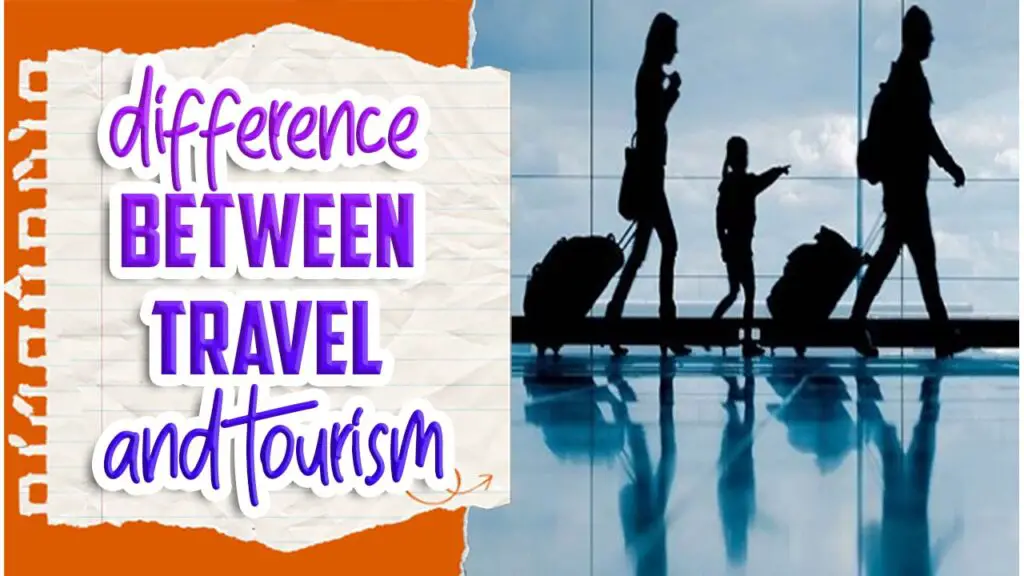
What Is Travel?

Travel can be defined as the act of moving from one place to another, typically for the purpose of exploration, leisure, or business. It involves physically journeying to different locations within one’s own country or internationally.
Travel can take many forms, including road, air, train, hiking, and backpacking. The main focus of travel is on the experience of visiting new places, immersing oneself in different cultures, and gaining new perspectives.
It is often seen as a means of personal growth and enrichment, allowing individuals to broaden their horizons and create lasting memories. Whether it’s a weekend getaway or a long-term adventure, travel offers endless opportunities for discovery and exploration.
What Is Tourism?
People can define tourism as traveling to different places for leisure, business, or other purposes. It involves visiting and exploring new destinations, experiencing different cultures, and engaging in various recreational activities.
Tourism plays a significant role in the economy of many countries, as it generates revenue by providing accommodation, transportation, and entertainment services. It also contributes to cultural exchange and understanding between different nations. Tourism is a diverse and dynamic industry encompassing a wide range of travel activities and experiences.
Understanding The Difference Between Travel And Tourism
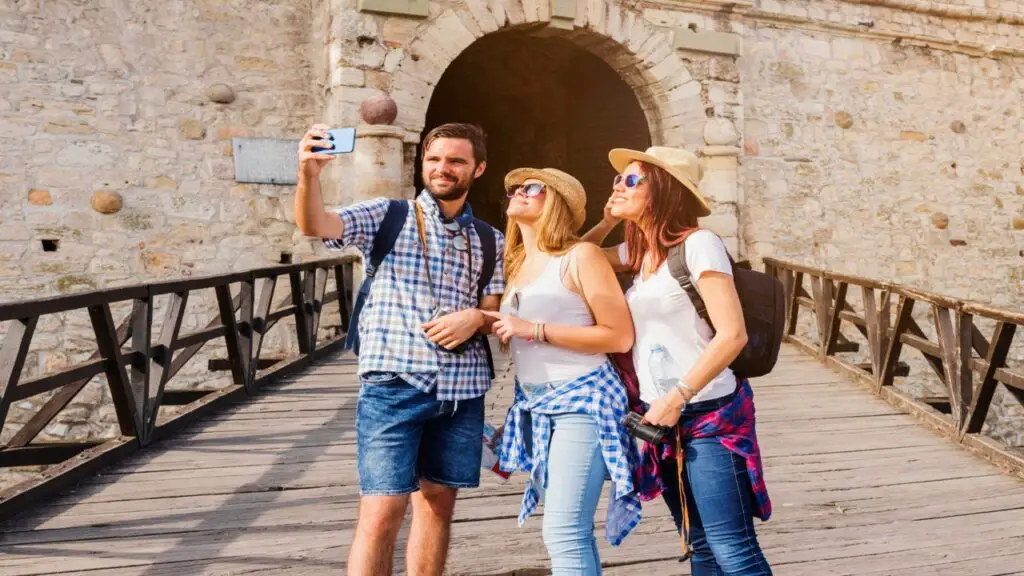
Understanding the difference between travel and tourism is essential for anyone interested. While people often use these terms interchangeably, the meanings of each term are distinct. Travel refers to moving from one place to another, typically for leisure, business, or personal reasons.
It encompasses the physical journey, including sightseeing, exploring new cultures, or visiting friends and family. On the other hand, tourism refers to the industry that facilitates and promotes travel.
It involves services such as transportation, accommodation, and attractions that cater to travelers. By understanding this distinction, we can better appreciate the various aspects of travel and tourism and their impact on individuals and economies.
1. Purpose Of The Visit
The purpose of traveling varies widely, from personal leisure to seeking adventure or visiting loved ones. On the other hand, tourism predominantly focuses on recreational activities, such as sightseeing and entertainment. While travel can be a part of tourism, not all travel falls under the tourism umbrella.
2. Duration Of The Stay

Travel involves moving from one place to another without considering the purpose or duration of the stay. On the other hand, tourism refers to travel specifically for recreational, leisure, or business purposes and typically includes staying in a destination for a certain period. Both travel and tourism contribute significantly to the economy, but tourism often involves longer stays with planned activities and attractions.
3. Attitude Towards The Destination

Regarding the attitude towards the destination, there is a difference between travel and tourism. While travelers may be more open to exploring local culture and interacting with locals, tourists often prioritize popular tourist sites and amenities. Their mindset and preferences can shape their experiences in a new place.
4. Type Of Activities Undertaken
Activities undertaken during travel can include sightseeing, visiting friends and family, attending events or conferences, or exploring new destinations. On the other hand, tourism activities are specific to the destination. They can include visiting tourist attractions, participating in cultural experiences, trying local cuisine, or engaging in adventure or recreational activities.
5. Level Of Cultural Immersion
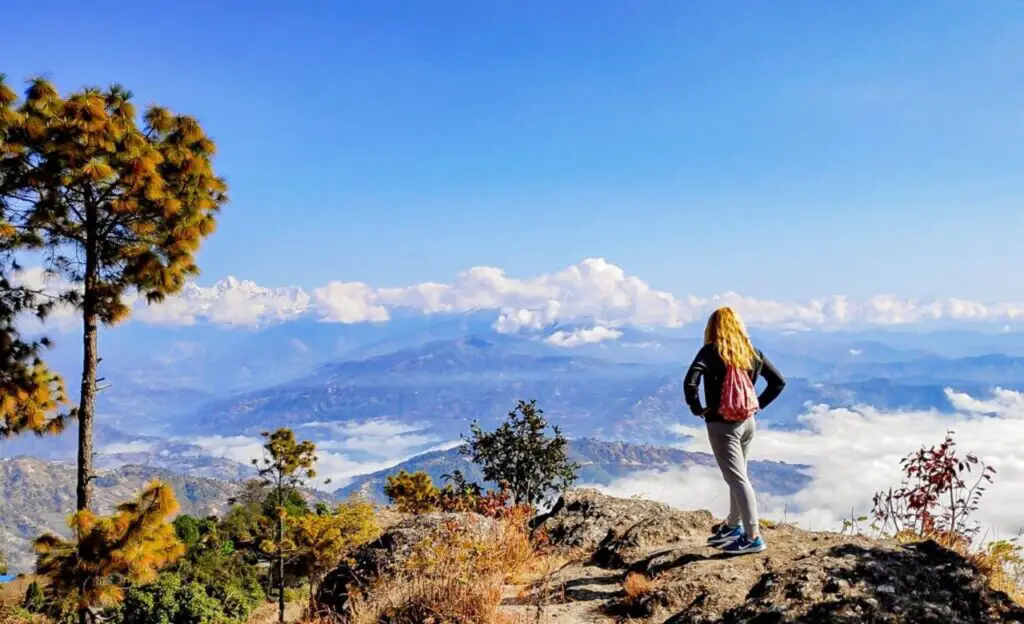
The level of cultural immersion varies between travel and tourism. While travel allows for more individualistic and flexible experiences, tourism often involves structured itineraries and interactions with tourist-oriented establishments. Travelers can explore and interact with locals, leading to deeper cultural immersion.
Similarities Between Travel And Tourism
While travel and tourism are often handy interchangeably, they share some key similarities. Both travel and tourism involve visiting different places and experiencing new cultures. They both require individuals to leave their usual environment and explore new destinations.
Travel and tourism can also provide relaxation, adventure, and personal growth opportunities. Whether you are embarking on a next trip to a foreign country or taking a guided tour of a popular tourist attraction, both travel and tourism offer unique experiences that can broaden your horizons and create lasting memories.
So, whether you consider yourself a traveler or a tourist, there is no denying that both activities have similarities that make them enjoyable and fulfilling.
Benefits Of Travel And Tourism
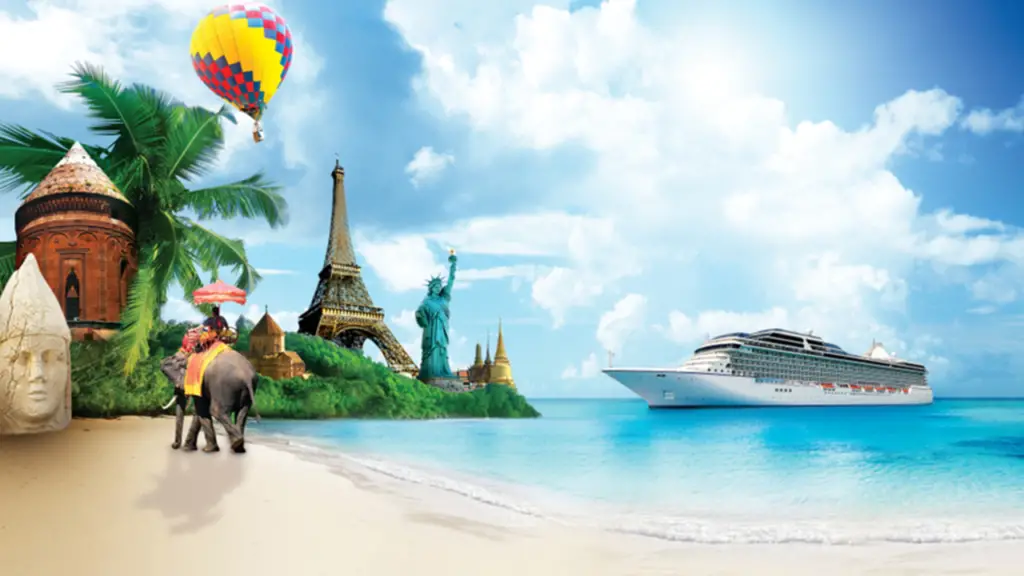
Travel and tourism offer many benefits for individuals, communities, and economies. One of the key benefits is the opportunity to explore new cultures and experiences, which can broaden perspectives and promote understanding and tolerance.
Travel and tourism also contribute to economic growth by creating jobs, generating revenue, and stimulating local businesses. Additionally, it can positively affect mental health by providing an escape from daily routines and allowing individuals to relax and rejuvenate.
From a social perspective, travel and tourism can foster connections between people from different backgrounds, leading to cultural exchange and mutual respect. Overall, the benefits of travel and tourism extend beyond personal enjoyment to encompass economic development, cultural enrichment, and social cohesion.
Impact Of Travel And Tourism On Society
Travel and tourism have a significant impact on society, both economically and socially. From an economic perspective, the travel and tourism industry contributes to job creation and stimulates local economies through the spending of tourists.
It also generates revenue for governments through taxes and fees. Socially, travel and tourism promote cultural exchange and understanding by exposing individuals to different traditions, languages, and customs. It can also foster community development by supporting local businesses and infrastructure projects.
Additionally, travel and tourism have the potential to contribute to environmental sustainability through responsible tourism practices that prioritize conservation and minimize negative impacts on natural resources. Overall, the impact of travel and tourism on society is far-reaching and multifaceted.
How Can You Make The Most Of Your Travel Experience?

Making the most of your travel experience involves a few key steps. First, it’s important to plan and do thorough research on your destination. This includes learning about the culture, history, and local customs and identifying must-see attractions and activities.
Next, consider getting off the beaten path and exploring lesser-known areas or hidden gems that may not be on the typical tourist itinerary. This can provide a more authentic and unique experience.
Additionally, try immersing yourself in the local culture by trying traditional foods, attending local events or festivals, and interacting with locals. Finally, be open-minded and flexible during your travels , as unexpected opportunities or experiences may arise to enhance your journey. By following these tips, you can ensure that you make the most of your travel experience and create lasting memories.
while travel and tourism may seem interchangeable, the two have distinct difference between travel and tourism. Travel is more about the journey, exploration, and personal experiences, whereas tourism focuses on visiting popular destinations and participating in organized activities.
Both have their unique benefits and impacts on society. Whether you prefer to travel or be a tourist, it’s important to make the most of your experiences by immersing yourself in the local culture, trying new things, and creating lasting memories.
So go out there and embrace the world around you. Whether you are a seasoned traveler or a novice tourist, it is important to recognize and appreciate the unique aspects of each.
Frequently Asked Questions
1.What Is The Difference Between Tourism And Travel?
Ans: Travel and tourism may seem similar, but they have distinct differences. Travel refers to moving from one place to another for various reasons, while tourism specifically involves visiting destinations for leisure or recreational purposes. Tourism often includes planned activities and visits to attractions, whereas travel can be more spontaneous. Understanding these differences helps clarify the unique aspects of each experience.
2.What Is Travel And Tourism In Simple Words?
Ans: Simply, travel involves moving from one place to another for various reasons like leisure, work, or personal purposes. On the other hand, tourism is a broader concept that includes sightseeing, visiting attractions, and experiencing different cultures.
Travel is physical movement, while tourism encompasses the activities and experiences associated with traveling. Both play a significant role in exploring new places, creating memories, and contributing to local economies.
3.What Are Travellers Versus Tourists?
Ans: Travellers and tourists differ in their approach to exploring destinations. Travellers seek authentic experiences and cultural immersion, while tourists follow structured itineraries and prioritize popular attractions. The distinction between the two is subjective, based on personal preferences and travel styles.
4.What Is Considered Tourism?
Ans: Tourism encompasses activities where individuals travel outside their usual environment for leisure, business, or other purposes. It involves sightseeing, visiting attractions, experiencing local culture, and engaging in recreational activities. Accommodation facilities like hotels and resorts are commonly used by tourists, who may also opt for organized tours or utilize transportation and tour guide services.
5.How Do Travel And Tourism Differ From Each Other?
Travel and tourism differ in their focus and scope. Travel involves moving from one place to another for various reasons, while tourism encompasses the activities and services related to travel.
While travel emphasizes the journey, tourism emphasizes the experience and enjoyment of visiting different destinations. Travel can be a part of tourism, but tourism involves additional elements like planning, marketing, and infrastructure development.
Leave a Comment Cancel reply
Save my name, email, and website in this browser for the next time I comment.
Sharing is Caring
Help spread the word. You're awesome for doing it!
Travel Vs Tourism: What’s the Difference?
Travel and tourism are often used interchangeably, but they encompass different activities and objectives. Travel generally refers to the act of moving from one place to another, which can be for various reasons including work, leisure, or education. Tourism, on the other hand, is a subset of travel that specifically involves visiting destinations for pleasure or cultural experiences.
Understanding the distinction between the two is crucial for both industry professionals and enthusiasts, as it influences how we approach planning, marketing, and enjoying these activities.
Table of Contents
Travel vs. Tourism (Comparison)
- Hiking vs. Trekking
- Urban vs. Rural
Defining Travel and Tourism
Travel refers to the act of moving from one location to another, which can be for various reasons such as business, leisure, or education. It encompasses all types of journeys and the experiences that come with moving between places.
Tourism is the activity of traveling to different locations for the purpose of leisure, culture, or recreation. It involves planning and enjoying visits to attractions, engaging in local activities, and often includes services such as accommodations and guided tours.
Types of Travelers and Tourists
Different profiles of travelers.
- Backpackers: Independent and budget-conscious travelers who carry all their belongings in a backpack, often seeking adventure and cultural experiences.
- Explorers: Individuals who travel to discover new places and experiences, often off the beaten path, valuing authenticity and novelty.
- Nomads: People who travel continuously or frequently move from place to place, often for extended periods, embracing a lifestyle of constant mobility.
Different Profiles of Tourists
- Package Tourists: Travelers who purchase pre-arranged tours that include transportation, accommodation, and activities, typically seeking convenience and predictability.
- Luxury Tourists: Individuals who seek high-end travel experiences, including luxurious accommodations, exclusive activities, and premium services.
- Mass Tourists: Large groups of travelers visiting popular destinations, often following established itineraries and relying on common tourist services.
Key Differences Between Travel and Tourism
- Purpose: Travel can be for various reasons such as business, education, or leisure, while tourism specifically focuses on leisure and cultural experiences.
- Duration: Travel can be short or long-term, including daily commutes, while tourism typically involves staying away from home for an extended period.
- Planning: Tourism often requires more planning and arrangements, including accommodations and activities, whereas travel can be more spontaneous.
- Economic Impact: Tourism has a significant economic impact on local economies through spending on services and attractions, while travel’s impact varies based on purpose.
- Experience: Travelers may prioritize the journey and the process of moving, while tourists focus more on the destination and experiences at the location.
In conclusion, while travel and tourism are closely related, they serve distinct purposes and have different impacts on individuals and economies. Travel encompasses a wide range of activities and reasons, from business to leisure, contributing to economic diversity. Tourism, as a subset of travel, focuses specifically on leisure and cultural experiences, often bringing substantial economic benefits to local economies but also posing challenges.
Basir Saboor
Related articles.

Alliance Vs Coalition: What’s the Difference?
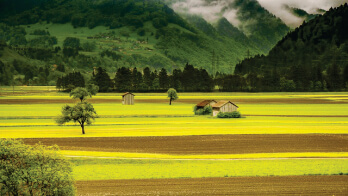
Intensive Vs Extensive Farming : Concepts, 10 Differences(With Table)

Verbal Vs Nonverbal Communication: What’s the Difference?

Express vs Implied Contracts : Understanding the Legal Difference

Travel vs. Tourism — What's the Difference?
Difference Between Travel and Tourism
Table of contents, key differences, comparison chart, economic perspective, compare with definitions, common curiosities, are all forms of travel considered tourism, how has technology impacted travel and tourism, is business travel a type of tourism, does travel always involve leaving the country, what's eco-tourism, why is sustainable tourism important, what's the difference between a travel agency and a tourism bureau, do tourism activities always require travel, can tourism exist without travel, can travel be a form of education, is commuting considered travel, can one be a tourist in their own city, what's space tourism, what's the difference between travel insurance and tourism insurance, why is tourism significant for economies, share your discovery.

Author Spotlight

Popular Comparisons

Trending Comparisons

New Comparisons

Trending Terms


Agent login
+1 (301) 989-1654
Do You Understand the Difference Between Tourism and Travel?
As a travel advisor, it's essential to understand the distinctions that distinguish tourism from travel. While these terms are often used interchangeably, they have distinct differences in both focus and purpose. Recognizing these distinctions can help Colesville Travel better cater to their clients' needs and preferences. By being aware of these differences and taking these differences into account when planning itineraries, Colesville Travel can ultimately enhance the client travel experience. In this blog, we will explore the differences between tourism and travel, and explain why these two concepts are not quite the same.
Tourism: A Structured Experience
Tourism primarily refers to the industry that revolves around organized and structured travel experiences. It involves people visiting destinations, attractions, and accommodations that are carefully designed to cater to tourists. The emphasis is on providing convenience, comfort, and well-planned itineraries to maximize enjoyment.
Purpose and Focus: The main purpose of tourism is to provide visitors with an enjoyable and memorable experience. Tourists often seek well-established destinations, guided tours, and structured activities that ensure they make the most of their trip.
Itineraries: Tourism frequently includes pre-planned itineraries with set schedules and activities. Travelers may opt for tours that cover popular landmarks, historical sites, and cultural experiences.
Amenities: Tourists expect a high level of comfort and convenience, with access to various amenities, such as hotels, restaurants, and transportation services.
Predictability: Tourism tends to be predictable, as visitors have a clear idea of what to expect, reducing the element of surprise or spontaneity.
Travel: A Personal Exploration
On the other hand, travel is a broader concept that encompasses a more personal and exploratory approach to travel. Travelers often seek to immerse themselves in the local culture and surroundings, experiencing a destination in a way that aligns with their individual interests and preferences.
Purpose and Focus: The primary focus of travel is to explore and discover new places, cultures, and experiences. Travelers often prioritize authenticity and personal growth.
Freedom and Flexibility: Travelers value the freedom to choose their path, make impromptu decisions, and explore off-the-beaten-path destinations. This can lead to unique and unconventional experiences.
Accommodation: While many travelers do opt to stay in 4-star hotels and have all the conveniences, some travelers prefer a variety of accommodation options, ranging from hostels and guesthouses to camping and homestays, depending on their preferences and budget.
Local Engagement: Travel encourages interaction with local people, trying local cuisine, and immersing in the local way of life. It often leads to more profound cultural exchanges.
The following are examples of tours for travelers who seek authentic and immersive experiences and want to connect with local culture and traditions:
Culinary Tours: Food is a gateway to culture. Culinary tours offer travelers the opportunity to explore local markets, sample regional dishes, and even take cooking classes to learn the art of preparing authentic dishes.
Walking Tours: Guided walking tours through historical neighborhoods or natural landscapes allow travelers to soak in the surroundings at a leisurely pace. Local guides often provide insights into the history, architecture, and share local stories that bring a place to life.
Cultural Festivals and Events: Attending local festivals, religious celebrations, or cultural events allows travelers to witness traditions, music, dance, and rituals that are deeply ingrained in the local culture.
Volunteer and Service Tours: Engaging in volunteer work while traveling provides an immersive experience, allowing travelers to make a positive impact on the local community.
Language and Cultural Exchange Programs: Learning the local language and engaging in cultural exchange programs can deepen a traveler's connection with a destination. This opens doors to genuine interactions with local people.
The Connection Between Personalized Tourism and Purposeful Travel
In the world of modern travel, there is a connection between tourism and travel. Many travelers seek personalized tourism experiences that blend the conveniences of structured tours with the authenticity and exploration of travel.
As a travel advisor, understanding the clients' preferences is key. Some may want the predictability and comfort of tourism, while others may prefer the freedom and adventure of travel. By creating customized itineraries, Colesville Travel can provide a more fulfilling and memorable travel experience.
Final Thoughts
In the realm of travel, it's important to recognize the differences between tourism and travel. While both have their place and appeal, understanding the clients' preferences and helping them find the perfect balance between the two can make the difference in creating an unforgettable trip. By catering to the unique desires of each traveler, Colesville Travel can ensure that their client’s travel experiences meet their expectations. Colesville Travel’s goal is to create authentic and immersive travel experiences which lead to more satisfied and loyal clients.
If you are interested in a customized tour to any destination around the world, contact Colesville Travel at 301-989-1654 or email us at [email protected]
Stay inspired,
Cindy
Stay Inspired
Thank you for subscribing!
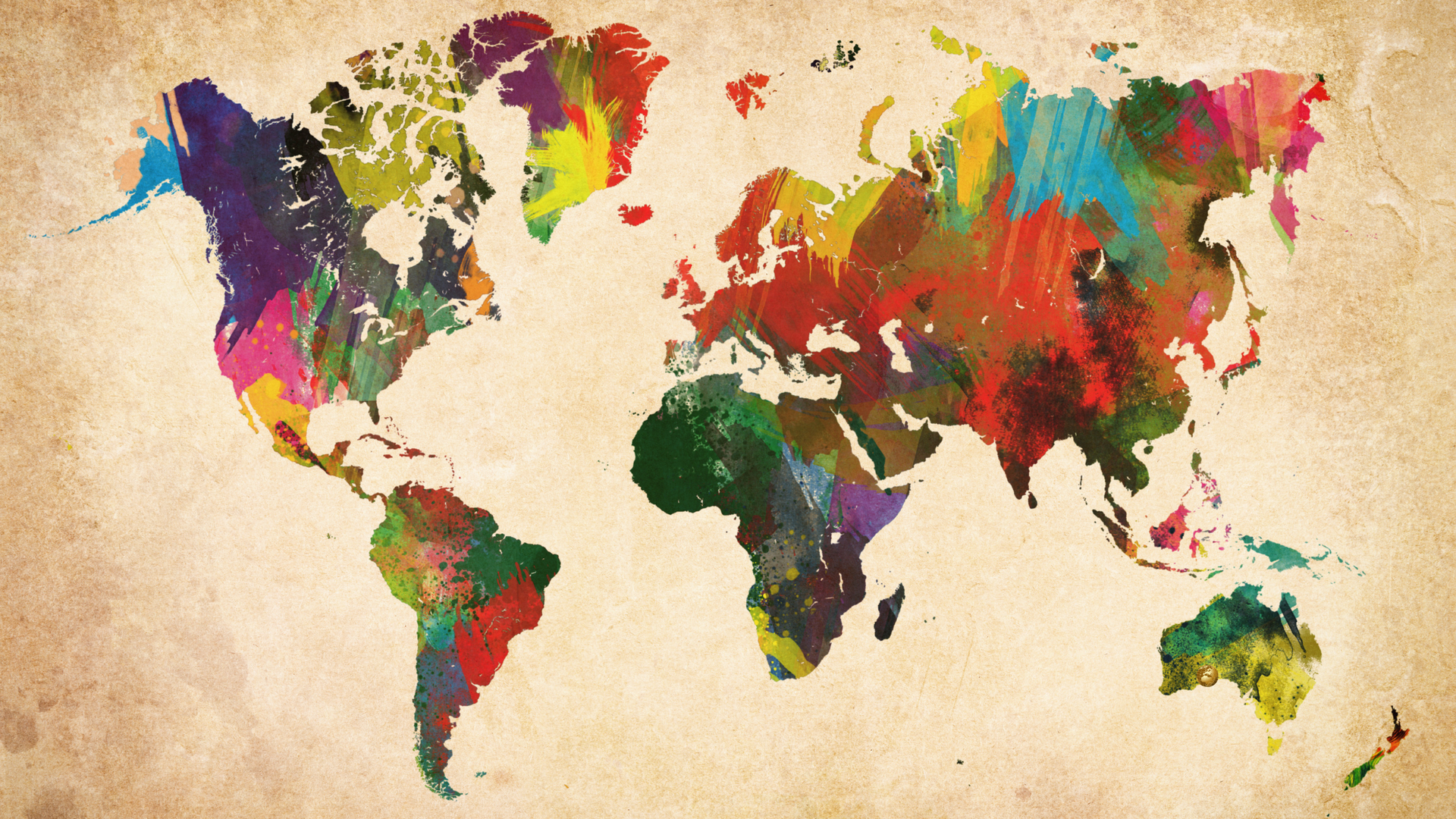
20 Incredible and Inexpensive Places to Travel Around the World
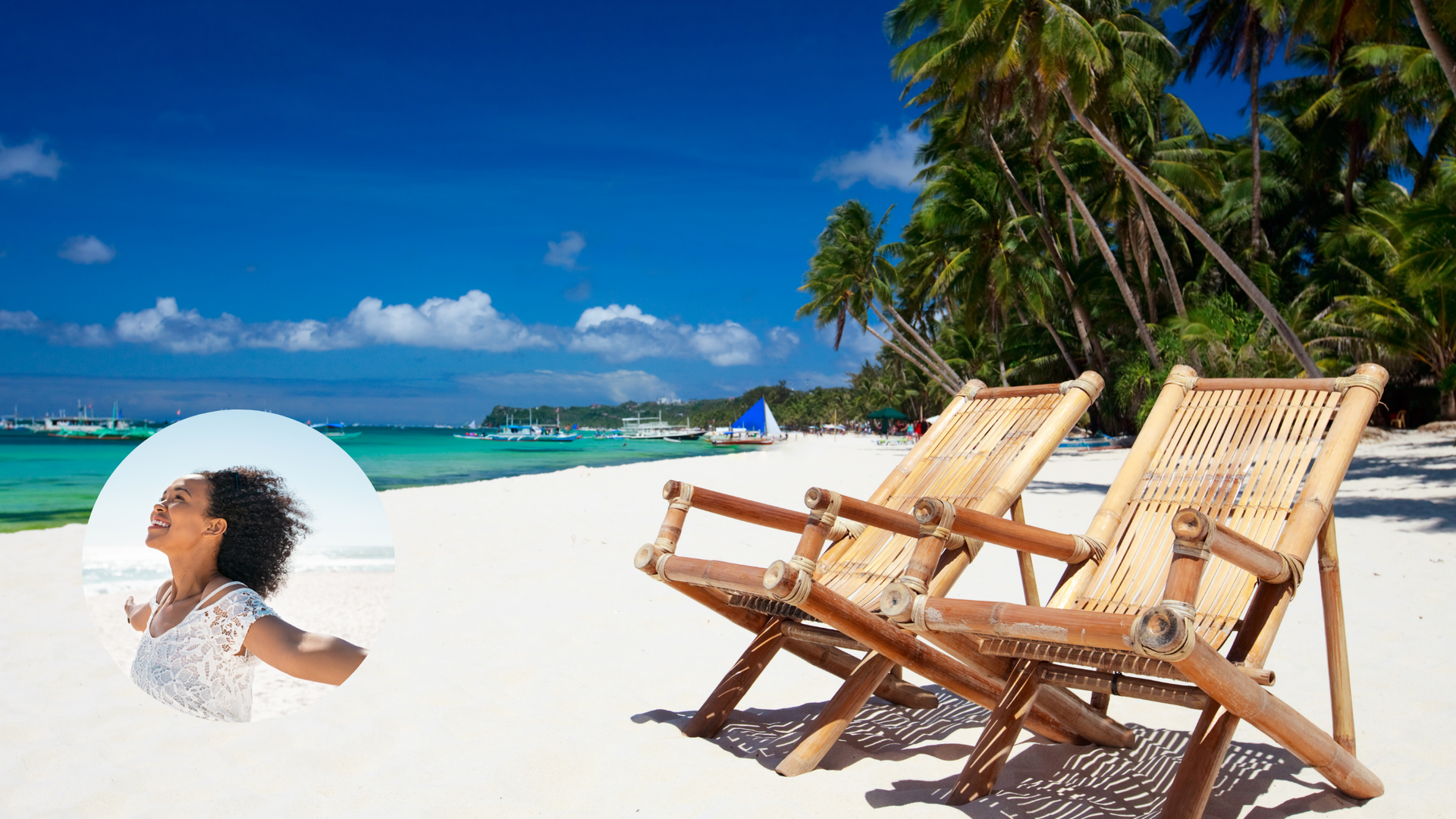
7 Reasons Why You Should Stop Waiting for the Perfect Time to Travel

What is the Best Day of the Week to Travel?

8 Travel Tips for Preparing Your Home Before Going on Vacation
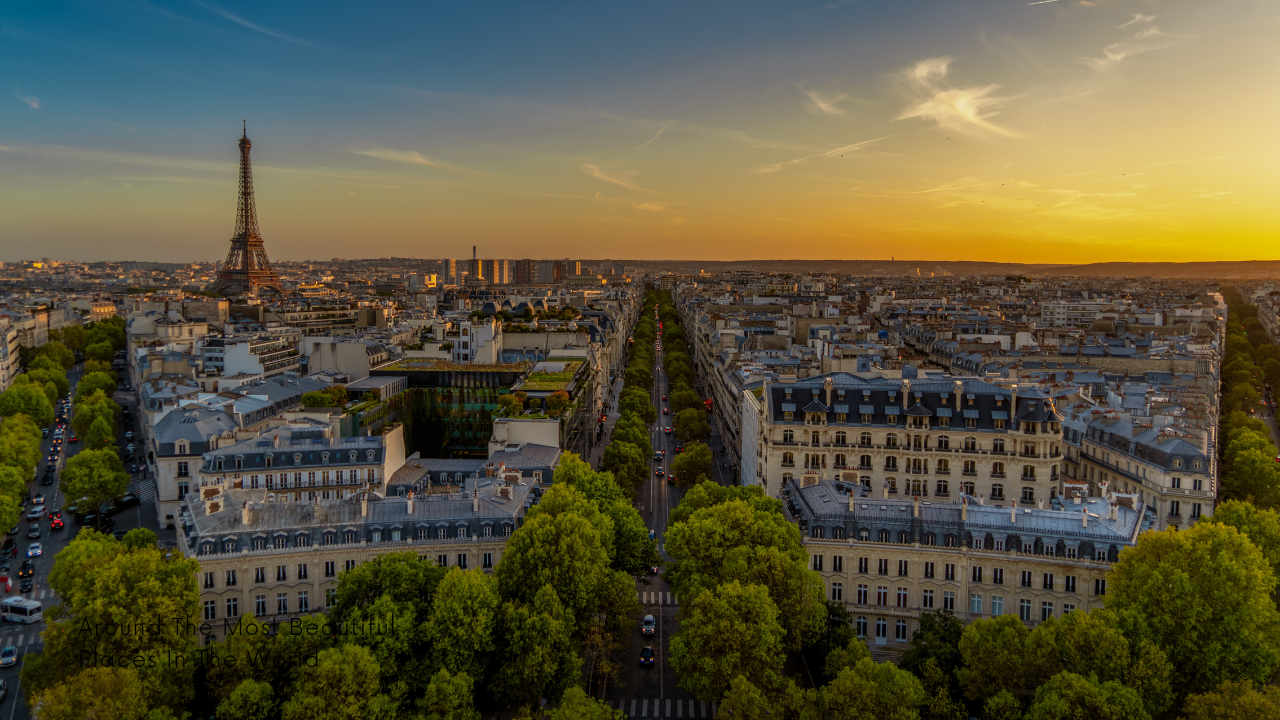
Black Paris & A Taste of France: Where History Mixes with Wine, Jazz, and Soul
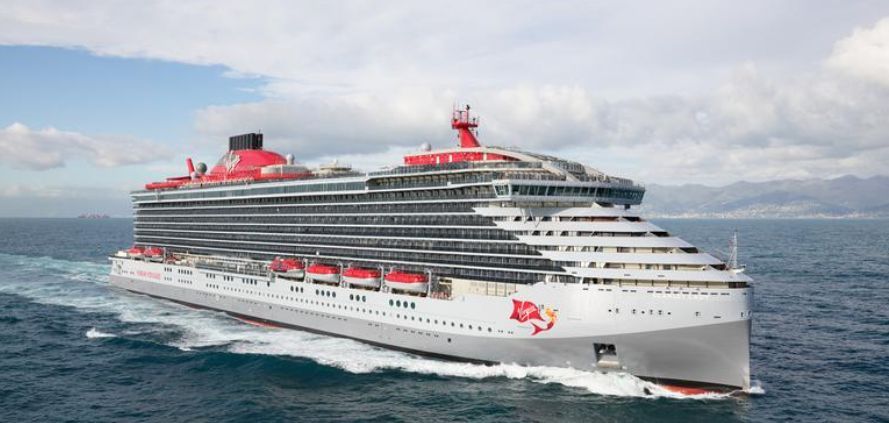
Time to Escape - Join Virgin Voyages to the Irresistible Mediterranean
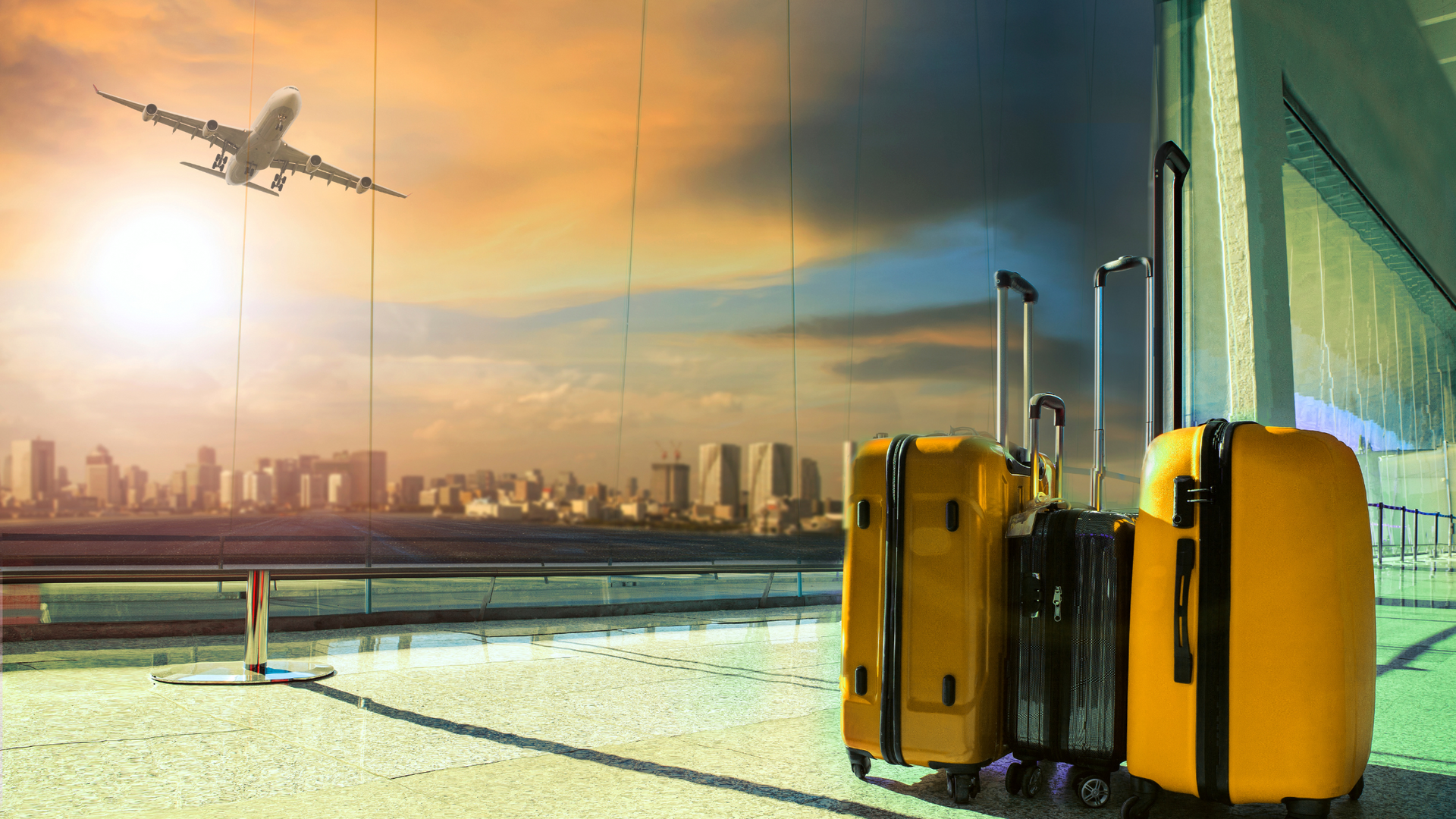
Fifteen Valuable Tips and Tricks to Plan and Travel Stress Free
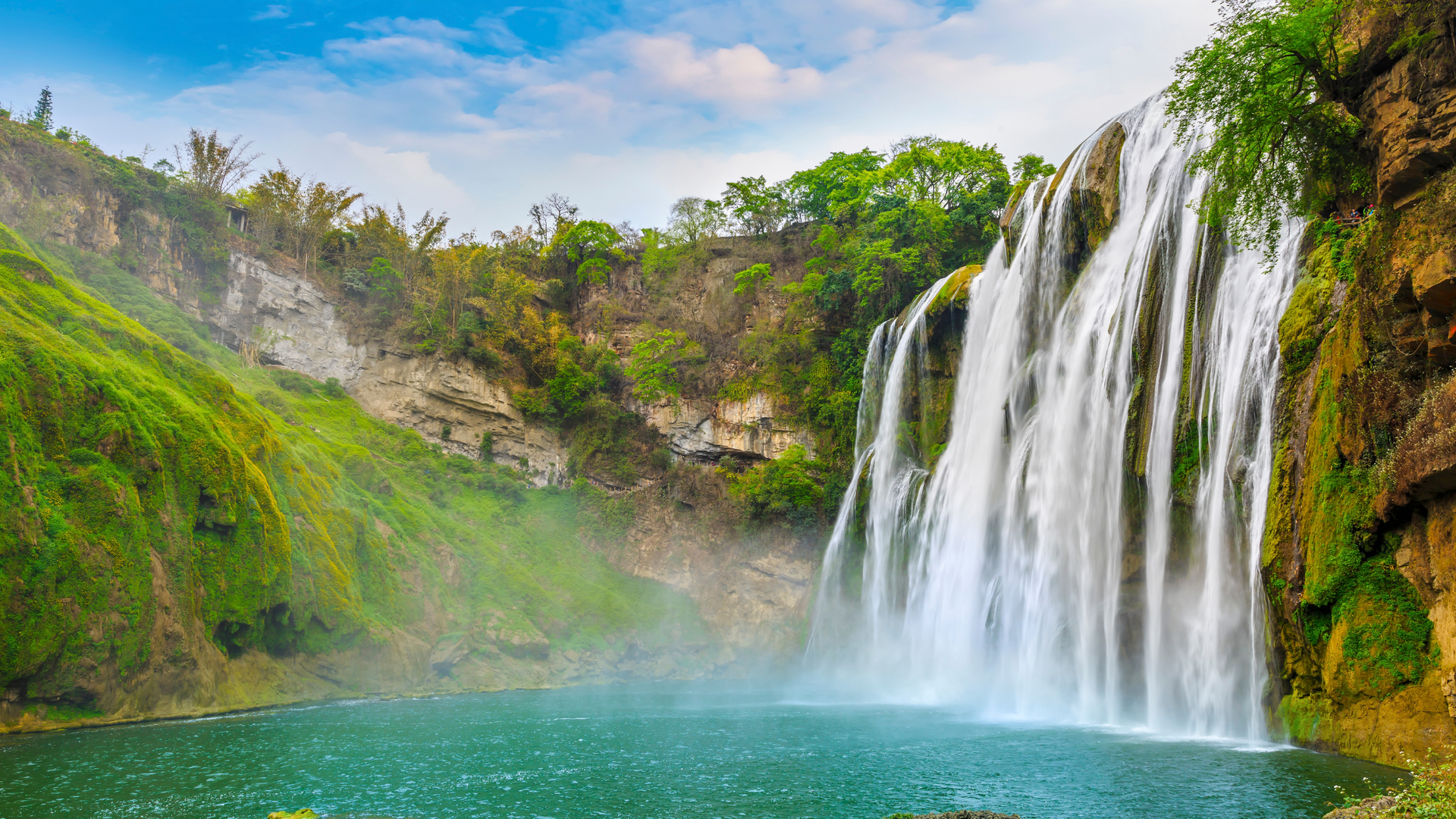
How to Craft the Perfect Travel Experience and Why Curated Experiences Matter
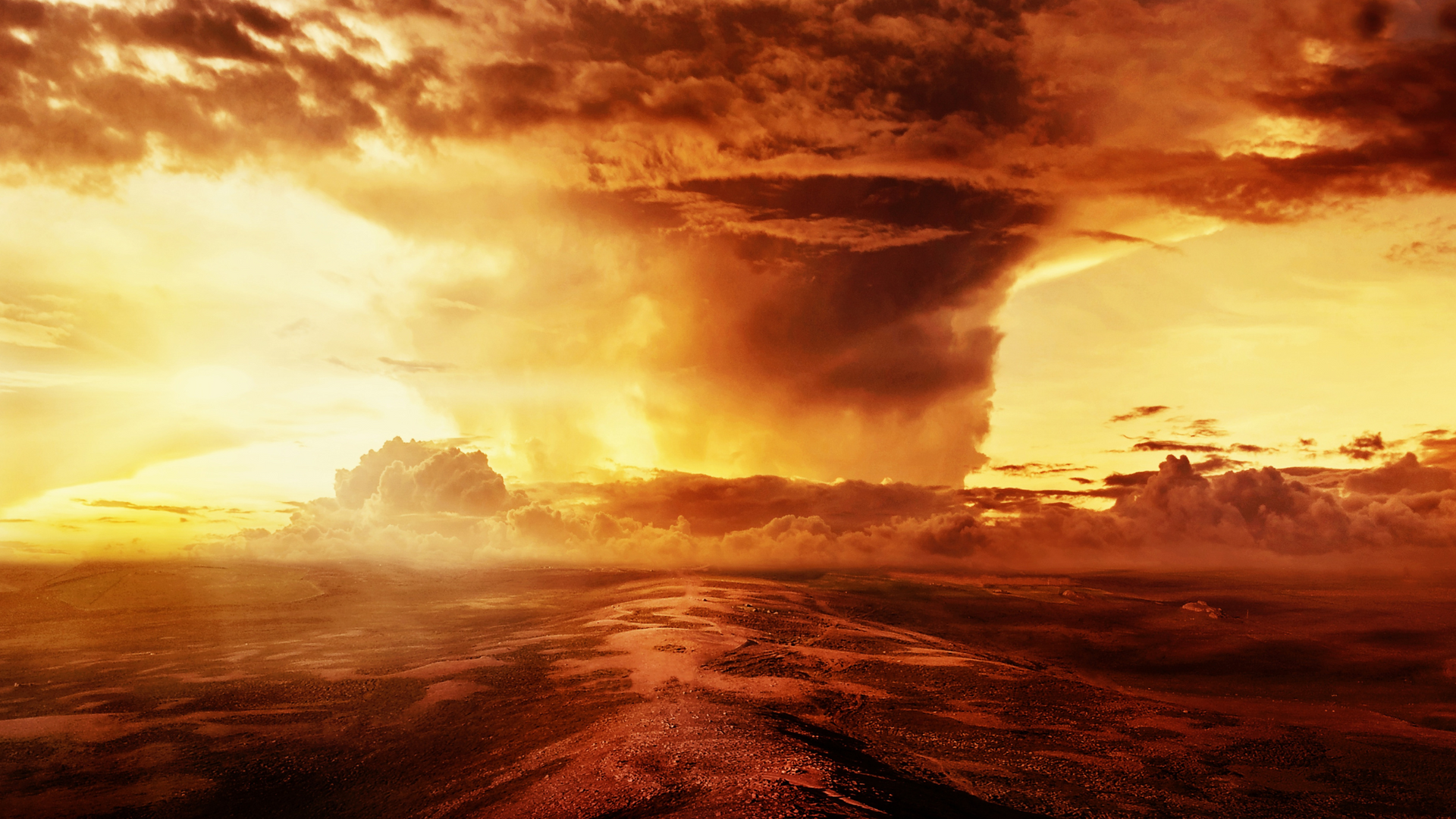
How to Avoid Travel Mishaps and Expert Tips for Stress Free Travel
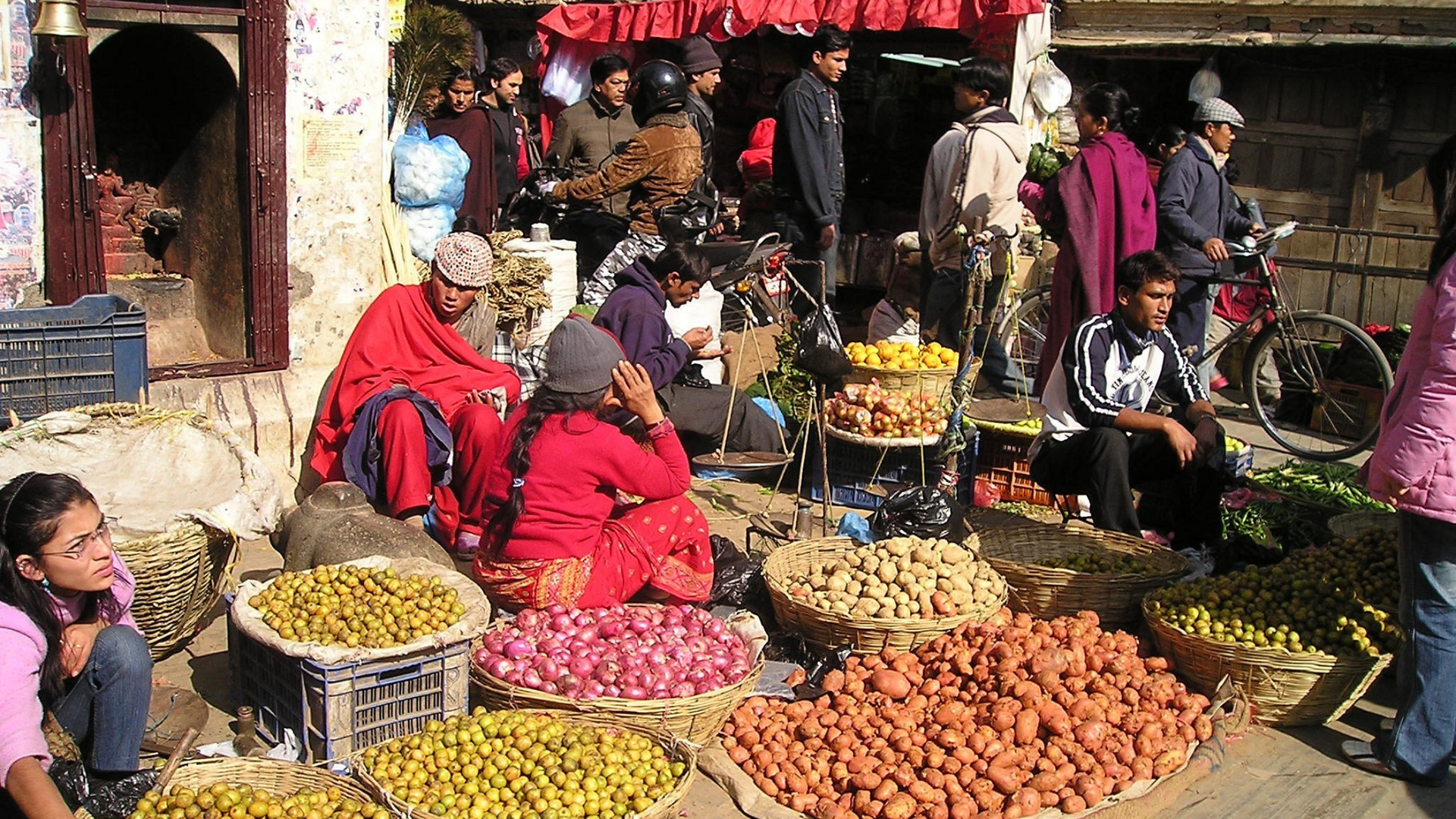
7 Destinations That Can Help You Change Your Life Through Travel
Let us help you, stay inspired, travel inspiration, updates & announcements, po box 4844 silver spring, md 20914 (301) 989-1654 | [email protected], © 2020 colesville travel | website designed by maneuverly.
Difference Between | Descriptive Analysis and Comparisons
Search form, difference between travel and tourism.
Key Difference: A traveller is a person that prefers to travel light and without and tour packages. They prefer to move from place to place and never prefer to settle. A tourist is supposed to quite the opposite of a traveller. A tourist is usually seen in a huge group of people, family or tour guides.
The terms travel and tourism are often believed to be one and the same. In the initial days travelling was considered as a means of survival, but these days things have changed, it is now considered as an art form.
To many the terms have no significant difference and have the same definition. Even the Merriam-Webster dictionary defines them both in similar terms.
- to go on a trip or journey : to go to a place and especially one that is far away
- to go through or over (a place) during a trip or journey
- to move from one place to another
- the activity of traveling to a place for pleasure
- the business of providing hotels, restaurants, entertainment, etc., for people who are traveling
The term tourism can also refer to an organization that caters or looks after the act of traveling from one place to another. Tourism organizations that are private are responsible for booking tickets, getting the visa process clear, organizing tours, taking care of accommodation and transport, etc. National and International organizations are responsible for ethical tourism, setting up opportunities for developing nations, developing and regulating tourism in their own country, etc.
However, for many people there is a stark difference in a tourist and a traveller. They also refer to an immigrant as a traveller “without a return ticket”. A tourist shares very few qualities with a traveller.
A traveller is a person that prefers to travel light and without and tour packages. They prefer to move from place to place and never prefer to settle. Travelling in when the individual likes to immerse themselves in the culture, they prefer to spend time with the locals, they eat the local food. They like to go off on their on to find the nooks and crannies of the cites. They prefer to sit in a secluded corner and just prefer to live in the moment, without worrying about visiting something or any planned tours.
A tourist is supposed to quite the opposite of a traveller. A tourist is usually seen in a huge group of people, family or tour guides. They prefer to stick of a schedule that may or may not be set by their tour guide. They prefer to visit the tourist places and snap photos of that place and themselves at that particular place. They also prefer not to mingle with the locals unless necessary, and prefer to speak in their own language rather than try the language of the locals. They do not prefer to try different foods and refer to stick to foods that they know, this includes fast food places such as McDonalds, etc. They often pack heavy and prefer to be prepared for any situation that they may come across.
While these are not the official definitions, the context that these two terms are used in have resulted in these stark differences between the two. There are also people who claim that there is no distinction, and that people can enjoy their holidays in any way that they would prefer to.
Comparison between Travel and Tourism:
Image Courtesy: jetnsave.com, travelandtourworld.com
Wed, 01/17/2018 - 17:09
Add new comment
Copyright © 2024, Difference Between | Descriptive Analysis and Comparisons
- Top Destinations
- Tourist Attractions
- Beach Locations
- Hotels and Restaurants
- Travel Backpacks

Well, well, it seems like you’re a little confused! This is because the terms “travel” and “tourism” are often considered the same and used interchangeably.
Like you, many people believe that there is no significant difference between travel and tourism, but if you dig deeper, you will understand the main differences. To begin with, let us first understand that “Tourism” is a part of “Travel ”, but not all “Travel” is “Tourism ”.
Travel involves breaking away from your daily routine, while tourism involves multiple visits to a specific location. The main difference between travel and tourism lies in the emphasis on travel. Travel focuses primarily on the act of moving, while tourism revolves around the immersive experience of exploring unknown destinations and connecting with diverse cultures. Recognizing these disparities can help you strategize your future trips more efficiently, allowing you to make the most of valuable aspects of the trip.
Table of Contents
Difference Between Travel and Tourism
What is travel.
Travel represents the process of moving from one place to another, and occurs for various reasons including to discover, get pleasure, do business, and certainly personal desires. Hunter-gatherers and nomads have been moving off this world for many millennia ago when the tribes of ancient times thoroughly traveled most of their territory in search of resources and new lands.
What is Tourism?
Tourism has its opposite in the word traveling which means traveling for recreational, leisure, or business purposes is outside one’s routine or usual environment. Planning is intrinsic to tourism as travelers will hire an organized visit, lodging, attractions, and recreational activities that will suit their needs and want.

Types of Travel:
There are three main types of travel:
- Domestic Travel
- International Travel
- Adventure & Recreational Travel
Understanding Domestic Travel
What is domestic travel.
To mean staying in your homeland is called local travel. It implies traveling and walking in the National regions, quizzing about the unique points of attraction of those regions, and finding out different experiences that lie within the national boundaries. Be it a local trip to a neighboring town or a drive across country roads, domestic traveling introduces a different choice of views for the adventure without the need for an airplane or a visa.
Advantages of Domestic Travel
The category of domestic travel is advantageous on one hand through its minimal cost, awareness of local culture and language, and simplicity of procedures. Consumers may be free of expenses for transportation and complicated problems for long-distance travel as well as international travel logistics such as exchange rates and language barriers. Besides, touring in-country itself creates a feeling of pride defense , and appreciation of local heritage and traditions.
Popular Domestic Travel Destinations
Domestic travelers can choose among large cities, restful natural surroundings, or any other sight that anyone would genuinely want to visit. Among the favorites are famous cities, namely New York, San Francisco, and Chicago, which are known the world over for their cultural assets, splendid cuisine, and call of vivacity. National parks like Yellowstone, Grand Canyon, and Yosemite become so infectious and beckoning for those who like nature at its best and associated outdoor activities.
Exploring International Travel
Definition of international travel.
Traveling abroad is a process of going to another country other than one’s birthplace. It involves studying foreign ways of life, foods, and places that show different physical characteristics to a person. These could be natural environments or manmade features created over time by people.
Benefits of International Travel
International travel allows us to learn many things we were not aware of before like learning other languages or understanding their culture better through being with them in their daily lives thus making friends all around the world . You can also gain knowledge on how various nations operate politically since each has its system which may differ from ours back home.
Top International Travel Destinations
The most beautiful places in our world are yet to exist, and we are the ones who are overlooked . Although the Machu Picchu archaeological remains in Peru and the indescribable, multiform Iceland’s nature can awe the imagination, our travels do touch the spirit. Paris, Rome, and Tokyo with their history and original attractions, very frequently, despite that the world is such a wide place and it gives room for many opportunities, become the most desirable places to travel to, while the rest of the places like Bali, Maldives and Tahiti which should certainly be found at the top of your list if you are a person who has chosen to travel to a paradise.

Unveiling Adventure & Recreational Travel
Definition of adventure & recreational travel.
Adventure & Recreational Travel includes a broad spectrum of activities aiming at exploration, and quest for extreme and exciting emotions. From the face of mind-boggling wilderness to water diving in the crystal-clear pools; adventure travels are a call to those who cherish adventurous adventures and are nature-loving.
Reasons for Choosing Adventure Travel
Adventure travel has something special for everyone; a chance to escape the typical routine and to try things that are otherwise not done, or remain a bit of mystery. Whether it’s through climbing the highest mountains or stalking on wildlife safaris, adventure travel helps to create this sense of exhilaration and accomplishment. Furthermore, it enables the link with the outside and the ability to escape from the hustles of modern society.
Examples of Adventure & Recreational Travel Activities
The scope of Travel & Recreational Adrenaline covers a vast field of activities Ranging from mild to intense pursuits. From trekking in rural wilderness conservation areas to surfing and snorkeling on some of the planet’s most exotic beaches, there is universally nothing you can’t do. Other top-notch activities include bike, rock, and zip-line, which all have different kinds of thrilling elements. Each of these has its unique treats.

Types of Tourism:
There are different kinds of tourism based on how they are categorized, but here are some popular ones:
- Wildlife Tourism
- Religious Tourism
- Sports Tourism
- Cultural Tourism
- Adventure Tourism
- Sustainable Tourism
- Medical Tourism
- Culinary Tourism
- Historical Tourism
Purpose and Motivation
Travel intention generally takes an important role in the tourism ecosystem, and this intention depends highly on individuals. For some groups, going overseas or moving abroad is a way to find thrills and do new things, whereas others travel for business, education, or visiting relatives and friends overseas. Tourism, in general, is driven by leisure, and being people’s wants and wishes, it relieves the monotony of their regular lives.
Scope and Scale
Travel can range from a routine in-town journey to work or an intercontinental extravaganza of all-time adventure. It can cover a blend of actions from the short range of geographic activities like domestic travel to long-distance voyages. While, on the one hand, tourism is centered on organized holidays, which come in the form of hotel services, sightseeing, and cultural immersion, on the other hand, the recreation activity comes in form of the physical, mental, and spiritual form of relaxation.
Historical Context
Over time, traveling has performed the role very pivotally regarding human civilization as it has contributed not only to trade but also to cultural exchange and the spread of ideas. The Silk Route in the Middle Ages to Eight of Exploration in European Renaissance history was among the factors that connected faraway lands and cultures. But even though tourism as a modern concept feels like ‘the 50s ‘, it’s the development of mass transportation and leisure travel at the beginning of the 19th century.
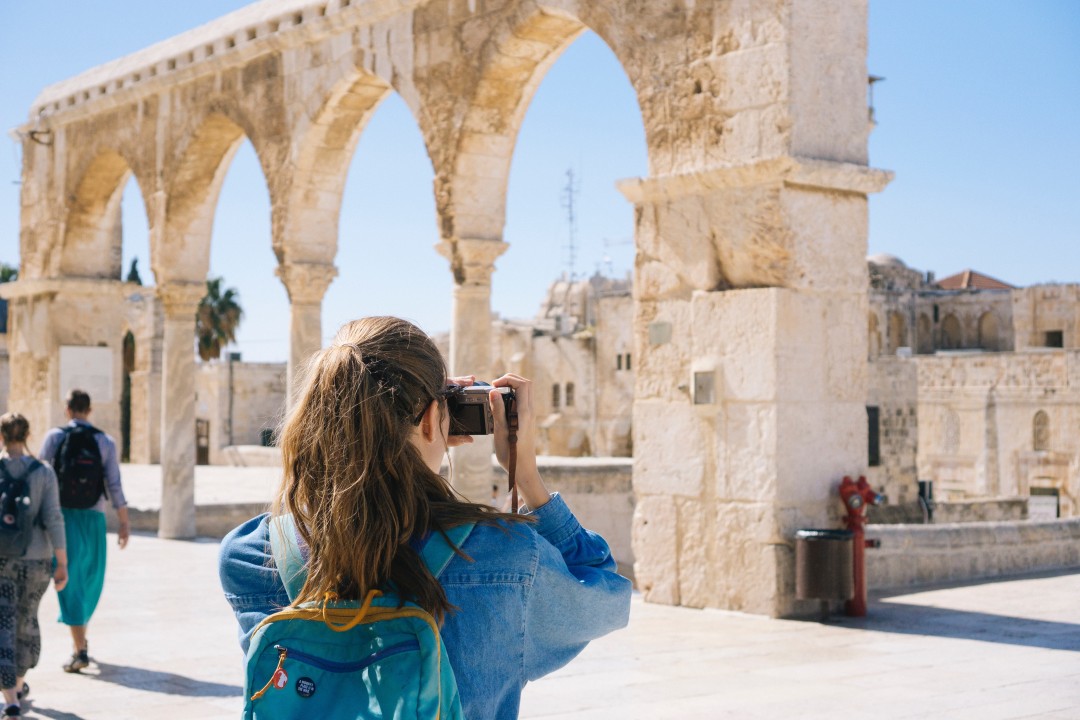
Economic Impact
The impact of international travel as well as tourism on the world’s economy is great . This ranges from revenue generation, employment creation, and foreign exchange earnings for the many nations of the world . The tourism industry has become an important sector of many economies, employing millions of people and attracting investments for the improvement of infrastructure and services.
Social Impact
Travel helps to increase cross-cultural understanding, empathy, and tolerance as it brings people in touch with different concepts and lifestyles. Likewise, tourism creates cultural exchange and mutual respect and leads to building friendships and links between individuals from diverse cultures and traditions.
Environmental Impact
Although travel and tourism can intensify a lot of advantages, they also raise environmental problems such as pollution, habitat destruction, and emission of carbon dioxide. Sustainable tourism initiatives are aimed at reducing environmental impacts by encouraging responsible traveling patterns and conservation efforts to protect nature and cultural heritage regions.
Cultural Significance
Travel and tourism have a considerable impact on preserving and protecting cultural heritage, traditions, and customs. Such opportunities make it possible for tourists to interact with local inhabitants, get to know their history, and take part in cultural activities, fairs, and festivals.

Types of Travel and Tourism
The varied ways of travel would include leisure trips, ecotourism, adventure tourism, & business travel and it would provide the opportunity to see different cultures & the world Everyone’s journey will change, but deliver a new and thrilling voyage of exploration, self-discovery, and greater depth to life
Infrastructure and Services
Growth of travel and tourism results in considerable investment in infrastructure such as airports, hotels, transportation networks, and tourist landmarks and buildings. They also provide a critical contribution to the improved travel experience and make the development of the tourism industry possible.
Global Trends
The travel and tourism business will keep going through technological, demand & supply, and geopolitical modifications. From the emergence of digital nomadism and the expanding demand for eco-tourism, tourism industry stakeholders need to systematically follow up with the trends to stay afloat .
Challenges and Concerns
Apart from the numerous advantages, this growing sector comes with its share of challenges, such as over-tourism, the destruction of the environment, and the diversification of culture. These areas can be solved through the cooperation between governments, businesses, and the local communities to ensure that the environment is normal for tourism.
Future Outlook
In the realm of globalization, which entails interconnectedness, travel and tourism are still required with increasing trends anticipated. The industry will adjust to the emerging trends and problems; it should do so by embracing innovation, sustainability, and inclusiveness to sustain in the long run while being positive as far as the communities and the environment.
Finally, although travel and tourism do parallel each other, they are two entirely different spheres in terms of activities and consequences, especially for the people, communities, and the environment. Through awareness of these differences, emphasis on responsible travel habits, and making use of the transformative power of travel and tourism for the creation of significant experiences, cross-cultural exchange, and sustainability, we can provide environments where future generations will have exceptional experiences.
Related Posts
The ultimate disney trip planner: your comprehensive guide to a magical vacation, royal caribbean cruise overboard incidents: understanding safety measures and procedures, how much is royal caribbean drink package, leave a reply cancel reply.
Save my name, email, and website in this browser for the next time I comment.
Stay Connected
Recent Stories
Your ultimate guide to booking flights to fairbanks, alaska, discover the magic of whale watching at torrance beach: your ultimate guide to spotting gray, blue, and humpback whales, exploring the wonders of arte museum las vegas, get ready for myrtle beach bike week 2024: the ultimate motorcycle rally, discover sun outdoors myrtle beach: a perfect getaway destination, experience crave north myrtle beach: a food lover’s paradise, exploring tourist attractiveness: what makes a destination irresistible, the pendolino train: revolutionizing rail travel, fiji airways: your gateway to the heart of the south pacific.
UntuckWorld's global travel writers can help you plan your perfect vacation. Our global network of professional authors is eager to build a customised trip plan for you.
Popular Articles
The ultimate guide to myrtle beach weather, the complete guide to myrtle beach airport, your comprehensive guide to long beach airport, explore the wonders of dreamworks water park, discover the wonders of kalahari water park, experience the magic of showboat water park, quick links.
- Privacy Policy
- Terms and Conditions
- Write for Us
Contact us:

IMAGES
VIDEO
COMMENTS
Key Differences Between Travel and Tourism. While ‘travel’ means moving from one place to another, there will be a change in the location, weather and overall environment. The term ‘travel’ is a very generic one which is used in our day-to-day lives.
Key Differences. Travel is a broad term that encapsulates the action of moving from one location to another. This movement can be for various reasons: business, leisure, education, or even due to unforeseen circumstances. Tourism, on the other hand, is a subset of travel.
while travel and tourism may seem interchangeable, the two have distinct difference between travel and tourism. Travel is more about the journey, exploration, and personal experiences, whereas tourism focuses on visiting popular destinations and participating in organized activities.
Key Differences Between Travel and Tourism. Purpose: Travel can be for various reasons such as business, education, or leisure, while tourism specifically focuses on leisure and cultural experiences. Duration: Travel can be short or long-term, including daily commutes, while tourism typically involves staying away from home for an extended period.
Travel vs. Tourism — What's the Difference? By Tayyaba Rehman — Updated on September 18, 2023. "Travel" refers to the act of moving from one place to another, while "Tourism" is the commercial organization and operation of vacations and visits to places of interest.
In the realm of travel, it's important to recognize the differences between tourism and travel. While both have their place and appeal, understanding the clients' preferences and helping them find the perfect balance between the two can make the difference in creating an unforgettable trip.
The key difference between travel and tourism lies in the emphasis placed on the journey. Travel primarily focuses on the act of moving, whereas tourism revolves around the immersive experience of discovering unfamiliar destinations and engaging with diverse cultures.
Difference between Travel and Tourism. Tweet. Key Difference: A traveller is a person that prefers to travel light and without and tour packages. They prefer to move from place to place and never prefer to settle. A tourist is supposed to quite the opposite of a traveller.
The main difference between travel and tourism lies in the emphasis on travel. Travel focuses primarily on the act of moving, while tourism revolves around the immersive experience of exploring unknown destinations and connecting with diverse cultures.
Travel and tourism are closely related concepts, but they have distinct differences. Travel refers to moving from one place to another for various reasons such as business, education, or personal. On the other hand, tourism involves travelling for leisure and exploring new destinations.